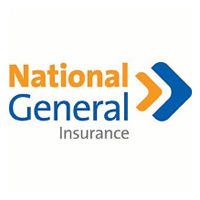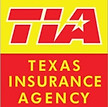Fitness Insurance
Ensure the smooth operation of your business with fitness insurance
Stay ahead in business with fitness insurance that keeps up with your pace
Fitness insurance, also known as gym or fitness center insurance, is a specialized type of coverage designed to protect fitness professionals, gym owners, and fitness facilities from the unique risks and liabilities associated with the fitness industry. This insurance encompasses various coverage options tailored to meet the specific needs of fitness businesses, personal trainers, and fitness instructors. It typically includes protection against potential risks such as accidents, injuries, equipment malfunctions, negligence claims, and property damage that may occur during fitness classes, personal training sessions, or in gym facilities.
Fitness insurance plays a crucial role in safeguarding the financial stability and reputation of fitness professionals and businesses, allowing them to provide fitness services with confidence while minimizing the impact of unforeseen challenges and legal claims.
Discover the actual risks fitness centers confront
Fitness centers and gyms face several risks and challenges in their daily operations. These risks can vary depending on factors like the facility’s size, location, equipment, and the services offered. Here are some of the common risks that fitness centers confront:
Injuries and Accidents: One of the most significant risks in the fitness industry is the potential for injuries and accidents during workouts. This can include slip and fall accidents, equipment-related injuries, or accidents during group fitness classes.
Negligence Claims: Clients may file negligence claims against fitness centers or trainers if they believe they received improper guidance, inadequate supervision, or faulty advice that led to injuries or health issues.
Property Damage: Damage to gym equipment, facilities, or property can occur due to accidents, vandalism, or wear and tear, resulting in repair or replacement costs.
Health and Safety Compliance: Compliance with health and safety regulations and guidelines is essential. Failure to maintain a safe and clean environment can lead to regulatory fines and legal issues.
Data Breaches: With the use of digital systems for membership management and payments, fitness centers may face the risk of data breaches, potentially compromising sensitive customer information.
Employee Injuries: Employees can also suffer injuries while working at fitness centers, leading to workers’ compensation claims and potential legal disputes.
Contractual Disputes: Disputes may arise over membership contracts, personal training agreements, or other contractual arrangements, leading to legal claims.
Professional Liability: Personal trainers and fitness instructors may face claims of professional negligence or errors and omissions in their guidance or training methods.
Theft and Burglary: Theft of personal belongings or break-ins can occur on gym premises, leading to property losses and potential liability claims.
Public Health Emergencies: Events such as disease outbreaks (e.g., COVID-19) can disrupt gym operations and lead to liability issues related to health and safety measures.
Slip and Fall Claims: Slippery or wet surfaces, poorly maintained equipment, or cluttered areas can result in slip and fall incidents, potentially leading to liability claims.
Libel or Slander: Disputes related to online reviews, comments, or social media posts can result in defamation claims against the gym or its employees.
Employee Practices Liability: Claims related to employment practices, such as wrongful termination or discrimination, can lead to legal disputes.
Cancellation and Refund Disputes: Member disputes over cancellation policies or refund requests can result in legal challenges.
Intellectual Property Infringement: Unauthorized use of copyrighted materials, music, or trademarks in fitness classes or marketing materials can result in intellectual property disputes.
Given these risks, fitness centers and gym owners should proactively manage and mitigate potential liabilities through proper safety measures, contracts, insurance coverage, and legal compliance to ensure the safety of their clients and the financial stability of their businesses.
Commercial Insurance Quote
What types of policies are available with fitness insurance?
Fitness insurance typically includes a range of policies and coverage options tailored to address the unique risks and liabilities faced by fitness centers, gym owners, personal trainers, and fitness professionals. Here are some of the common types of policies included in fitness insurance:
General Liability Insurance: Provides coverage for bodily injury and property damage claims that may occur on the premises of the fitness center or during fitness activities. It also covers legal defense costs.
Professional Liability (Errors and Omissions) Insurance (E&O): Offers protection against claims of professional negligence, errors, or omissions in the guidance and services provided by personal trainers and fitness instructors.
Property Insurance: Covers damage to the fitness center’s property, including equipment, furnishings, and the facility itself, due to events like fires, theft, vandalism, or natural disasters.
Business Interruption Insurance: Provides financial support in the event that the fitness center must temporarily close due to a covered loss, helping to cover lost income and ongoing expenses.
Workers’ Compensation Insurance: Required in most jurisdictions, workers’ compensation insurance covers medical expenses and lost wages for employees who are injured on the job.
Product Liability Insurance: Protects against claims related to injuries or property damage caused by defective fitness equipment or products sold at the gym.
Cyber Liability Insurance: Covers costs associated with data breaches, cyberattacks, and unauthorized access to member data, including notification expenses, legal fees, and data recovery.
Crime Insurance: Safeguards against financial losses resulting from crimes such as employee theft, embezzlement, or fraud.
Employment Practices Liability Insurance (EPLI): Provides coverage for claims related to employment practices, including allegations of wrongful termination, discrimination, or harassment.
Umbrella Liability Insurance: Offers additional liability coverage beyond the limits of primary policies, providing added protection in the event of a catastrophic loss.
Health and Safety Compliance Insurance: Covers fines, penalties, and legal expenses associated with regulatory violations or non-compliance with health and safety regulations.
Abuse and Molestation Liability Insurance: Provides coverage for claims related to allegations of abuse or molestation that may occur on gym premises.
Tenant Improvement Insurance: Covers improvements or renovations made to a leased fitness center location, ensuring that these investments are protected.
Personal Property Insurance: Offers coverage for members’ personal belongings, such as clothing and valuables, in case of theft or damage on the gym premises.
Group Fitness Instructor Insurance: Specialized coverage for fitness instructors teaching group classes, covering potential liability claims related to class activities.
Pool or Aquatics Insurance: For fitness centers with pools or aquatic facilities, this policy covers risks specific to swimming and aquatic activities.
Legal Expense Insurance: Provides coverage for legal expenses associated with disputes, contractual issues, and other legal matters that may arise in the fitness industry.
The specific policies and coverage limits included in fitness insurance can be customized to meet the needs of each fitness center or professional, depending on their size, services offered, and location. Fitness business owners should work closely with insurance providers experienced in the fitness industry to ensure they have comprehensive coverage that addresses potential liabilities and risks.

As a fitness center, protecting your business with an insurance policy is crucial.
Reach out to us for a personalized consultation and explore the coverage options that suit your specific needs.
Companies We Work With






















